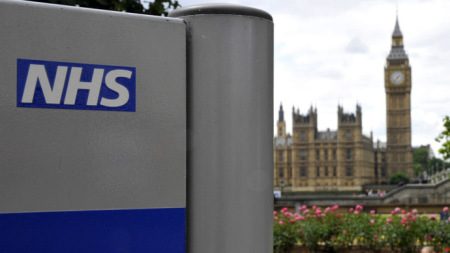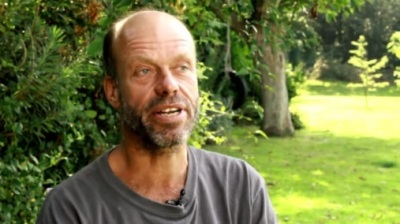Christian doctor faces losing medical license for praying with patients

A Christian doctor is under investigation after a complaint was filed accusing him of praying and "evangelizing" to patients.
Dr. Richard Scott, 58, a general practitioner at the Bethesda Medical Centre in Margate, Kent, England, is the subject of a fitness to practice inquiry launched by the General Medical Council after a complaint was filed by the National Secular Society.
He is also reportedly being investigated by the National Health Service in England, according to The Telegraph.
The National Secular Society said in the complaint filed in May that Scott, who has worked as a doctor for more than 20 years, made a “vulnerable” patient feel “discomfort at the use of prayer.” The allegation was made to the NSS by an acquaintance of the patient.
"The acquaintance told the NSS that the patient felt unable to express discomfort and was not able to raise the matter formally or change GP practice,” the NSS contends in a news release. “The NSS wrote to the GMC and the local clinical commissioning group to highlight the case and ask how the bodies intended to protect patients' right to access health care free from evangelism.”
Scott received written notice on June 7 from the GMC saying that it had received “some information” from the NSS and that an investigation was underway.
GMC issued Scott a warning in 2012 after Scott was accused by the NSS of telling a patient "the devil haunts people who do not turn to Jesus.” Scott was also accused of expressing his religious beliefs in a manner that distressed a “psychologically troubled” patient.

The head of the GMC at the time declared that Scott’s actions constituted “a significant departure from the principles in Good Medical Practice.”
The NSS notes that Scott could have been fired if there was another complaint issued against him in the ensuing five years. But no complaints were made in that time. The NSS contends that there have been three informal complaints and one minor written complaint filed against Scott since 2017.
NSS’ most recent complaint to the GMC also included comments Scott made on BBC's Radio 4 earlier this year, in which he declared drug addiction to be a “relevant circumstance" for using faith in his work.
He said that some “found a great deal of achievement through taking on faith.”
Scott added that he often introduced faith into consultation when "dealing with people with depression or anxiety.”
He clarified in the interview that faith is in “addition” to medical treatments rather than an alternative.
With another complaint on file, Scott believes the NSS is “gunning” for him and would like to see him lose his job because “they don’t like me.”
“Well, to be honest, I don't like them but I am not gunning for them to lose their jobs,” Scott told The Sunday Times. “They think I am irresponsible and dangerous and I would say the same about them."
NSS President Keith Porteous Wood argued in an interview with LBC radio's Nick Ferrari on Monday morning that NHS patients shouldn’t have to worry about having a doctor force religious beliefs on them.
“It’s an extraordinarily sensitive issue where a doctor comes on with his or her religion. And you’re a vulnerable patient, and you don’t want to irritate them, you kind of just have to take it, and actually inwardly squirm,” Wood said. "They won’t want to turn around and say, ‘I don’t believe what you believe.’ Somebody who’s going to a doctor who’s part of the NHS shouldn’t have that problem.”
“What if they think prayer is pointless or they just feel uncomfortable by it?” Wood asked. “I don’t think a patient should be put in that position when they’re going for an NHS treatment. I think that in a multicultural society that’s absolutely wrong. And I think it’s just as wrong if they said, by the way, I think you ought to vote Conservative in the next election.”
Wood assured that he doesn’t want Scott to lose his job but wants to see people “act in a professional way.” He said, however, that it's GMC’s decision whether Scott should lose his medical license.
Tim Dieppe, head of public policy for the advocacy group Christian Concern, told Premier that Scott always asks patients if they are open to discussion before bringing his faith into consultation. When they are not open to discussion, Dieppe said that Scott respects their wishes.
"The National Secular Society are being very aggressive in saying he should be struck-off for having conversations about spirituality once he's done his clinical GP responsibilities in the appointment with his patients and I think that's way over the top,” Dieppe said. “He's a very good doctor with long-standing experience and what's wrong with him talking to patients about the benefits of prayer?"
Dieppe also asserted that it's “somewhat absurd” that the NSS is using a vulnerable patient to make its case. He added that it's “kind of crazy” that the GMC has launched an investigation “on the basis of hearsay of what a patient claimed happened in a conversation.”
“There's no complaint about, medically, what he's done or the diagnosis or what the clinic is offering that is just hearsay about a conversation at this stage,” Dieppe stressed.
"The fact is that prayer makes a difference,” Dieppe continued. “The fact is we are spiritual beings as well as physical beings and if you're showing concern for a patient as a whole person you'll want to bring spirituality into it sometime, when you feel that that's appropriate.”
Follow Samuel Smith on Twitter: @IamSamSmith
or Facebook: SamuelSmithCP





















